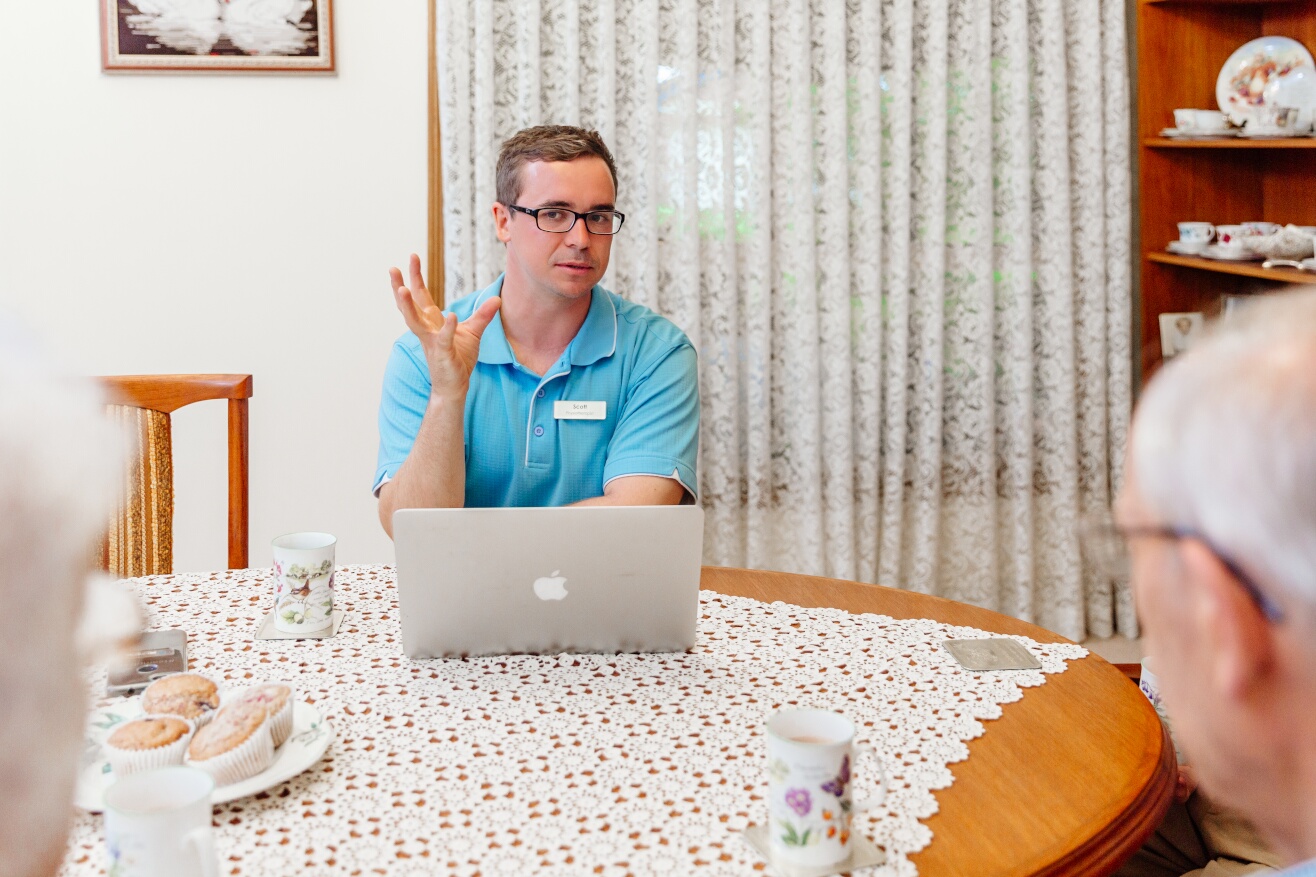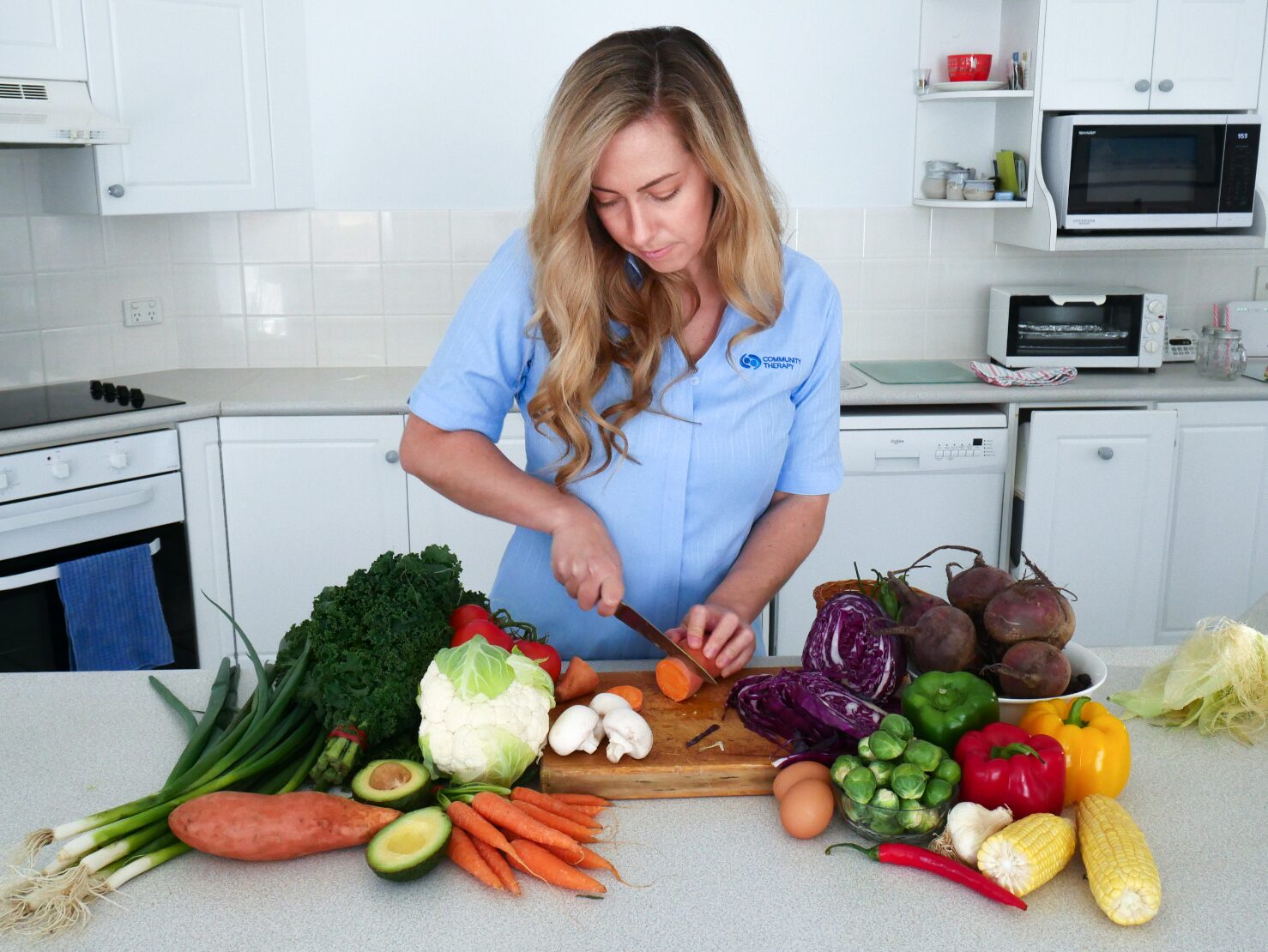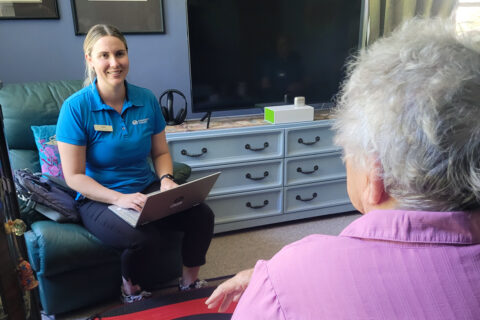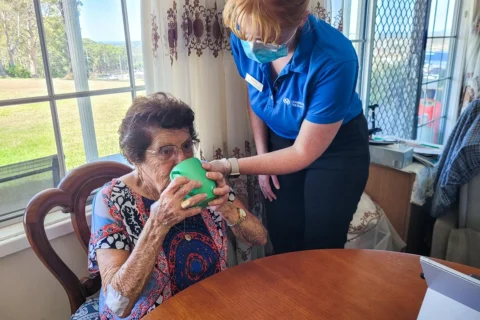Community Therapy helped a delightful lady, aged 88 who was living in home care at Shoal Bay, NSW.
The client contacted Community Therapy because they self-reported to be asymptomatic and had a recent spike in blood glucose levels (BGLs).

Initial Assessment
The meeting was a face-to-face initial assessment and took place between our Dietitian and the client. During this assessment, we typically review medical history, dietary history and begin to set meaningful goals.

The lady was T2DM insulin-dependent for less than 20years with multiple comorbidities, including:
- Sciatica
- Prostate Carcinoma
- Peripheral vascular disease
- Type two diabetes
- Hyperlipidaemia
- Gout
- Hypertension
- Diabetic nephropathy
- Osteoarthritis (fingers)
- Renal impairment
- Macular oedema
- Diabetic retinopathy
- Retinal vein thrombosis
Our Dietitian performed a qualitative dietary assessment, evaluation on medication and biochemical data inclusive of recent BGLs and her current nutritional diagnosis.
The client’s goal was to prevent Hypoglycemic events.

Output from Initial Assessment
In our report, the key items of note were as follows:
- Overall poor diet management
- Inconsistent carbohydrate intake with reduced physical activity related to preference for sweets (including fruit and discretionary choices)
- Largely due to COVID19 restrictions, there was a dietary increase and a reduction in physical activity identified
- We identified that the client was in a precontemplation stage of change, so we used and utilised Motivational Interview techniques to move toward determination/action with regard to allowing meal service support
Interventions:
- Reduce fruit intake to 2 serves per day
- Increase salad and vegetable intake, aim for 5 serves/day
- Healthier snack choices – examples provided
- Purchase several ready-to-eat, salt-reduced meals that client can store in the freezer to use if client does not feel like cooking, or is feeling unwell
- Increasing physical component will inherently improve the management of diabetes/insulin
The initial report was completed based on the findings of the assessment, from here, Community Therapy will typically advise a long-term healthcare strategy for the lovely lady.

Description of Work Performed
Our clinician helped the client towards her meaningful goals using the following strategies:
- Increasing awareness about the reduction in healthy behaviors which lead to high BGLs
- Self-Reevaluation/ Self reappraisal: Increasing awareness about the negative side-effects of Hyperglycemia such as fatigue, increased urinary output/continence, and further damage to her eyes with respect to her goals of being independent at home
We also scheduled our next home visit, where we have planned a Hba1c blood test. A Hba1c is used to help diagnose and monitor diabetes.
Considerations
COVID-19 is a contributing factor towards an increase in poorer dietary choices. It was identified that additional support may be needed, such as meal delivery.
Community Therapy carefully considered the insulin medication prior to suggesting dietary changes, we recommended the lady follow this up with her GP and Certified Diabetes Educator (CDE).

Community Therapy – Providing Dietetics to the Community
To learn more about our dietetic services, please browse to our dedicated page.
Community Therapy is a Allied Health provider of Physiotherapy, Occupational Therapy & Dietetics to the community.
- Located in The Hunter, Newcastle, Port Stephens and the Central Coast
- We are registered with Dietitians Australia
- We are a mobile healthcare provider
- Our clinicians are university-trained
Please use our contact or referrals pages to get in touch.


 November 27, 2024
November 27, 2024

